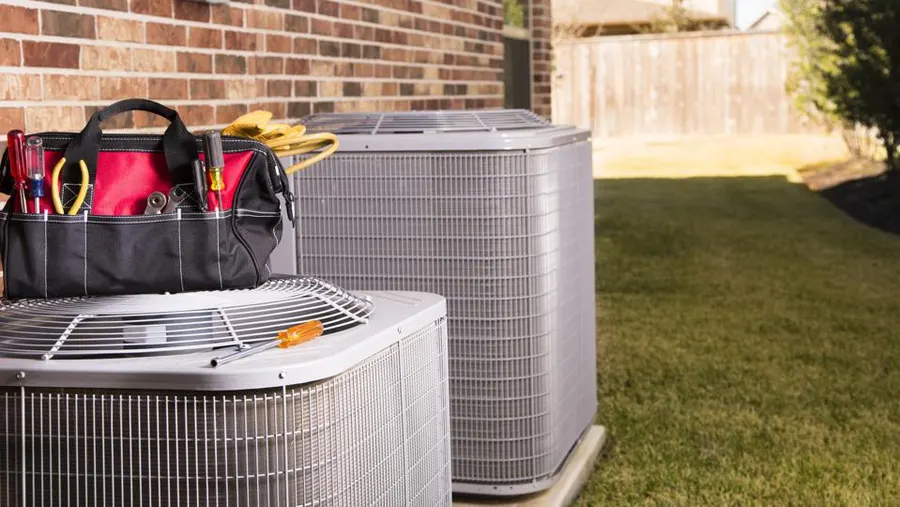The ultimate guide to choosing the right HVAC system for your home! Selecting the proper heating, ventilation, and air conditioning system can be daunting, whether building a new home or considering an upgrade. We’ll walk you through everything you need to know about HVAC systems. From understanding how they work to determining which type best suits your needs, we’ll help you make an informed decision that will keep your home comfortable all year round.
Understanding HVAC Systems
HVAC, which stands for heating, ventilation, and air conditioning, is responsible for maintaining a comfortable indoor environment. It regulates temperature, humidity levels, and airflow in your home. But how does it work? The heating component of an HVAC system warms your home during colder months using various methods such as a furnace or heat pump. On the other hand, the cooling part cools your home during warmer months by removing heat from the inside and expelling it outside.
Factors to Consider When Choosing an HVAC System
When choosing an HVAC system for your home, it is essential to make an informed decision. Take your time and consider all your options before making a final choice. There are several factors you need to consider before making a final choice. First and foremost, you must consider your home’s size. An HVAC system that is too small will need to be more significant to keep up with cooling or heating demands, while one that is too large will save energy and result in higher utility bills. Another essential factor to consider is the climate in which you live. If you reside in an area with extreme temperatures, invest in a system with advanced features such as variable-speed motors or dual-stage compressors.
Types of HVAC Systems: Pros and Cons
The central air conditioner is a popular type of HVAC (Heating, Ventilation, and Air Conditioning) system. This system uses ducts to distribute cooled air throughout your home. The main advantage of a central air conditioner is that it can cool your entire house evenly and efficiently. However, the installation can be expensive and requires ductwork. Another option is a heat pump system. Heat pumps are versatile because they heat and cool your home by transferring heat between indoor and outdoor environments. They are highly energy-efficient but may struggle in extreme cold climates. Ductless mini-split systems offer flexibility in terms of zoning control, as each unit operates independently from one another.
Sizing Your HVAC System for Your Home
One of the most crucial factors to consider when choosing an HVAC system is ensuring it is appropriately sized for your home. A system that is too small will need more support to keep up with demand, leading to efficient cooling or heating. On the other hand, a too large system can lead to frequent on-off cycling and wasted energy. It would help if you considered several key factors to determine the right size for your HVAC system. The square footage of your home plays a significant role in determining the necessary capacity. However, other factors such as insulation levels, ceiling height, number of windows, and climate also come into play. When sizing your HVAC system, relying on something different than guesswork or assumptions is essential.
Energy Efficiency and Cost Considerations
One crucial aspect to consider is the SEER rating of the HVAC system. SEER stands for Seasonal Energy Efficiency Ratio and measures how efficiently the unit can cool your home during a typical cooling season. The higher the SEER rating, the more efficient the system is, which means lower energy consumption and potentially lower utility costs. Another factor to consider is whether you live in a region with extreme weather conditions. If so, opting for a variable-speed or two-stage compressor might be beneficial as they can adjust their output based on current conditions. This results in better comfort control while minimizing energy usage.
Maintenance and Upkeep Requirements
Maintenance and upkeep requirements are essential when choosing the right HVAC system for your home. Proper maintenance ensures that your system operates efficiently and prolongs its lifespan, saving you money on repairs or replacements in the long run. Regularly changing air filters is one of the simplest yet most essential maintenance tasks. Clogged filters reduce airflow, making your HVAC system work harder and consuming more energy. Cleaning or replacing them every 1-3 months helps maintain optimal performance.
Choosing the Right HVAC Contractor
“It is crucial to conduct thorough research and make a wise decision.” After all, the installation and maintenance of your HVAC system will significantly impact its performance and lifespan. Consider the experience and reputation of the contractor. Look for a company that has been in business for several years and has a track record of providing quality service. Check online reviews and ask for recommendations from friends or family members who have used their services. When hiring contractors, ensure they are licensed and insured to protect against accidents or damages during installation or repair. When hiring contractors, ensure they are licensed and insured to protect against accidents or injuries during installation or repair.
Upgrading Your Current HVAC System
If you already have an HVAC system in place but are considering an upgrade, there are a few things to remember. First and foremost, assess the current state of your system. Is it old and inefficient? Are you experiencing frequent breakdowns or high energy bills? If so, it may be time for an upgrade. Consider investing in newer technologies with increased energy efficiency when upgrading your HVAC system. Look for systems with high SEER (Seasonal Energy Efficiency Ratio) ratings, as they can help reduce your utility costs.





